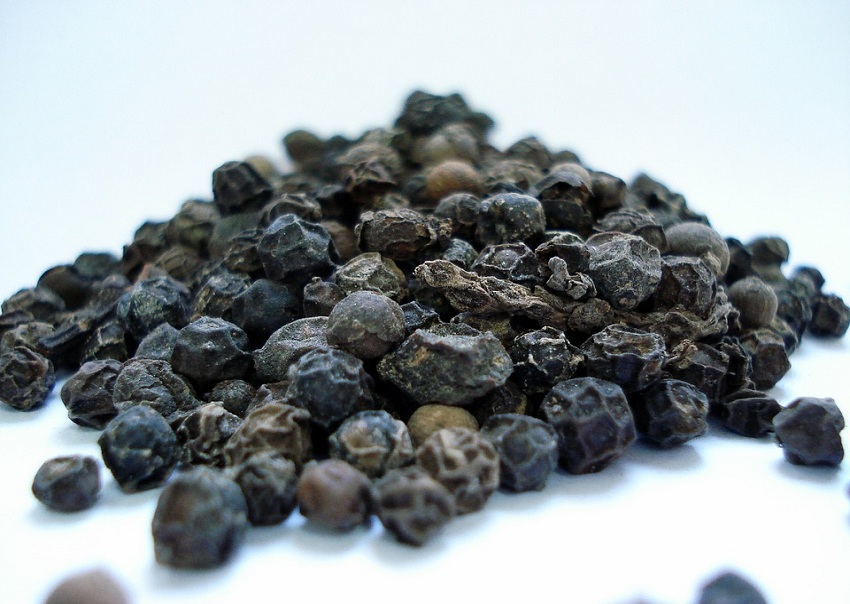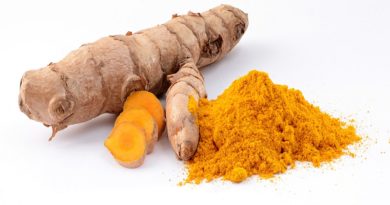Black Pepper – Best for Health

Hydrochloric acid is necessary for the digestion of proteins and other food components in the stomach. When the body’s production of hydrochloric acid is insufficient, food may sit in the stomach for an extended period of time, leading to heartburn or indigestion, or it may pass into the intestines, where it can be used as a food source for unfriendly gut bacteria, whose activities produce gas, irritation, diarrhea or constipation.
Benefits of Black Pepper
Black pepper has long been recognized as a carminative, a property likely due to its beneficial effect of stimulating hydrochloric acid production. Black pepper also has diaphoretic (promotes sweating), and diuretic (promotes urination) properties.
Black pepper has more healthy properties than most people know about. Black pepper is a spice that has the potential to make food more beneficial when used in various recipes and as a table spice. Many people start their day with a cup of black coffee with a pinch of black pepper powder. The aroma of freshly ground black pepper is difficult to ignore.
Black peppercorns contain good amount of minerals like potassium, calcium, zinc, manganese, iron, and magnesium. Potassium is an important component of cell and body fluids that helps controlling heart rate and blood pressure. Manganese is used by the body as a co-factor for the antioxidant enzyme, superoxide dismutase. Iron is essential for cellular respiration and blood cell production.
The health benefits of black pepper include relief from respiratory disorders, cough, common cold, constipation, digestion, anemia, impotency, muscular strains, dental care, pyorrhea, diarrhea, and heart disease.
Other Health Benefits of Black Pepper
Because of its antibacterial properties, pepper is also used to preserve food. It is a source of manganese, iron, potassium, vitamin C and vitamin K and dietary fiber. Black pepper is a very good, anti-inflammatory agent.
Improves digestion – By grinding or shaking black pepper onto your meal, you may actually be aiding yourself in the digestion of that meal. Black pepper stimulates the taste buds, alerting your stomach to increase its hydrochloric acid secretion which aids in digestion.
Very good for stomach: Pepper increases the hydrochloric acid secretion in stomach and thus, helps digestion. Proper digestion is essential to avoid diarrhea, constipation and colic. Pepper also helps to prevent formation of intestinal gas. Pepper-added diet promotes sweating and urination.
Help Lose weight: The outer layer of peppercorn assists in the breakdown of fat cells. Hence, peppery foods are a good way to help you shed weight.
Very good for skin: Pepper helps to cure Vitiligo, which is a skin disease that causes some areas of skin to lose its normal pigment and turn white. According to researchers, piperine contained in pepper can stimulate the skin to produce pigment. Topical treatment of piperine combined with ultra violet light therapy is much better than the other treatments for vitiligo.
Relief for cough and cold: Pepper is added in tonics for cold and cough. Pepper gives relief from sinusitis and nasal congestion.
Good antioxidant: An antioxidant, like pepper, can prevent or repair the damage caused by the free radicals and thus helps to prevent cancer, cardiovascular diseases and liver problems.
Medicinal uses:
- Peppers have been used therapeutically in dentistry as an antiseptic for tooth-decay and gum swellings.
- Peppercorns are also being used in traditional medicines in treating flatulence and indigestion in traditional medicine, but there is little or no data to support these claims in modern medicine.
Culinary uses
Black pepper is one of the most versatile spices used in virtually in all savory cooking. In order to keep the fragrance and flavor intact, it is generally ground just before preparing dishes and added at the last minutes in the recipes.
Negative Effects of Black Pepper
All in all, it seems that more likely black pepper has positive health benefits. But before you start loading black pepper onto every single meal, realize that there are possible negatives effects.
Pepper may cause sneezing. Patients who have undergone abdominal surgery should not take pepper added diet because pepper has an irritating effect on the intestines. It is also not good for people with ulcers. Black pepper should not be taken in high concentration.



